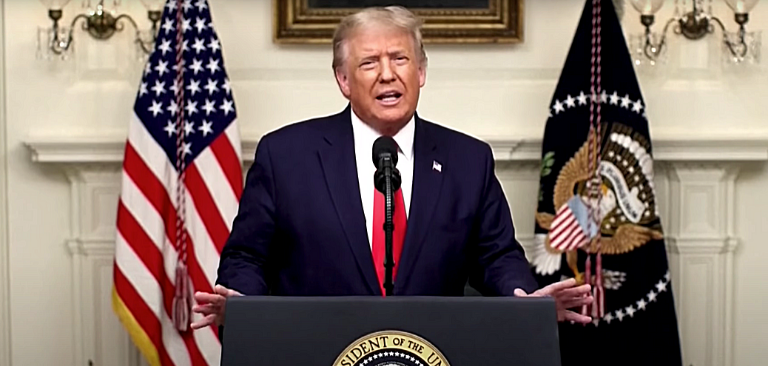President Donald Trump has stepped up his criticism of tech giants for their role in controlling communications and commerce as a means to promote biased ideas, and prevent many from having their voices heard on these platforms.
Trump has consistently accused the likes of Twitter, Google, and Facebook of such actions for many years, and the latest comments he made came amid his reelection campaign, as his own posts and messages increasingly getting subjected to “fact checking” and various forms of censorship.
According to the Washington Post, social networks’ rationale for implementing such policies is that the president “may seed doubts about the legitimacy of the 2020 election” and with his posts “in some cases carry the potential to incite violence.”
Trump’s reaction has been to launch legal initiatives aimed at amending legislation like CDA’s Section 230, passed in 1996, that shields tech companies from legal liability for user-generated content, while at the same time allowing them to editorialize and censor that content unchecked.
The purpose was to protect these at the time startups and allow them to grow – but now, they have grown into monopoly-like behemoths that are often accused of controlling online communication and many want the law to be revisited.
Trump and his administration believe that the law is ripe for change, that would this time around result in protecting the internet from these companies by ensuring openness and competitiveness, as well as consistent and fair moderation practices.
This was formally articulated in an executive order signed by the president earlier in the year, asking the Federal Communications Commission to consider Section 230 and the way it currently protects tech companies, while the Federal Trade Commission was tasked with looking into the giants’ moderation and censorship in view of their pledge to be politically neutral.
On Wednesday, Trump met with nine Republican state attorneys general, announcing that his administration was now considering concrete legal steps against what he said was a small group of tech companies that have a firm grip on online activities in the US.
Also on Wednesday, US Attorney General William Barr remarked that individual states can implement their own laws to deal with online platforms they suspect might be engaged in “defrauding or misleading users.”













